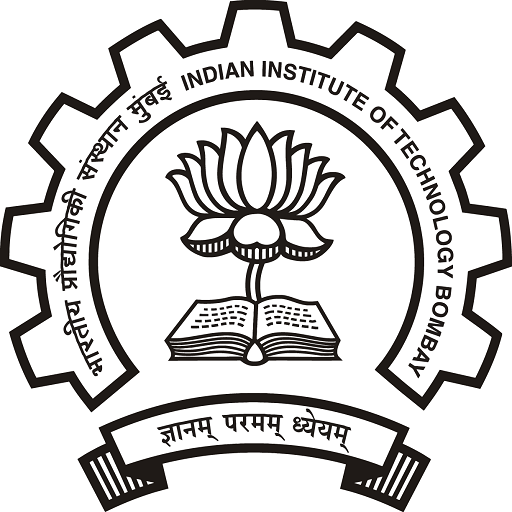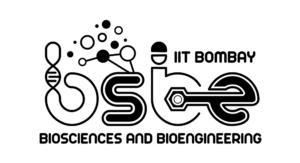Patankar, S.
Dr. Swati Patankar
Professor
Phone: +(91-22) 2576 7773
E-mail: patankar [at] iitb.ac.in
Location: Room No. 502, BSBE Building
Lab web page

Research Interest
- Regulation of gene expression in the malaria parasite Plasmodium falciparum: transcription initiation, translation initiation, splicing
- Bioinformatics analysis of P. falciparum genome sequence to study regulation of gene expression and acquisition of genetic diversity
- P. falciparum tubulin as a target for anti-malarial compounds
- Anti-oxidant networks in P. falciparum
Academic Background
- 1984-1986 International Baccalaureate
Armand Hammer United World College, New Mexico, USA - 1986-1989 B. Sc. (Honours Programme), Life Sciences/ Biochemistry
St. Xavier’s College, Mumbai, India - 1990-1996 Ph. D., Molecular Microbiology
Tufts University, Boston, USA - 1996 – 2000 Postdoctoral fellow, Immunology & Infectious Diseases
Harvard School of Public Health, Boston, USA
Teaching (current)
Introduction to Cellular and Molecular Biology, Molecular Biology, Topics in Biotechnology, Genetic Engineering Laboratory
Professional Experience
- Sept 2000 – June 2002 Group Leader, Genetics, Quest Institute of Life Sciences, Senior Scientist and Lab Head, GeneQuest Laboratory Nicholas Piramal India Ltd., Mumbai, India
- July – Oct 2002 Visiting scientist, Harvard School of Public Health, Boston, USA
- Oct 2002 – Feb 2003 Visiting scientist, Advanced Centre for Training, Research and Education in Cancer, Mumbai, India
- April 2003 – March 2007 Assistant Professor, School of Biosciences and Bioengineering, Indian Institute of Technology Bombay, Mumbai, India
- April 2007 – Associate Professor, School of Biosciences and Bioengineering, Indian Institute of Technology Bombay, Mumbai, India
Memberships
- 2001- Present: Life member, Indian Society for Cell Biology
- 2001-2004: Invited member, The Special Programme for Research and Training in Tropical Diseases (TDR) Working Group on Genomes to Drugs. TDR is described below.
- 2005-2008: Invited member, TDR Steering Committee on Pathogenesis and Applied Genomics
Publications
Walunj, S., Wang, C., Wagstaff, K., Patankar, S. and Jans, D. A. (2022). Conservation of the classical nuclear import machinery in apicomplexans: ivermectin and GW5074 as potential therapeutics for malaria and toxoplasmosis. International Journal of Molecular Sciences. 23(22), 13899.
Bhambid, M., Dey, V., Walunj, S. and Patankar, S. (2022). Toxoplasma gondii importin alpha shows weak auto-inhibition. bioRxiv, doi: https://doi.org/10.1101/2022.10.06.510747
Chakrabarti, R., Chery-Karschney, L., White, J., Mascarenhas, A., Skillman, K. M., Kanjee, U., Babar, P. H., Patrapuvich, R., Mohapatra, P. K., Patankar, S., Smith, J. D., Anvikar, A., Valecha, N., Rahi, M., Duraisingh, M. T. and Rathod, P. K. (2022). Diverse malaria presentation across NIH South Asia ICEMR sites in India. American Journal of Tropical Medicine & Hygiene. 107(4_Suppl), 107-117.
Walunj, S.B., Dias, M. M., Kaur, C., Wagstaff, K. M., Dey, V., Hick, C., Patankar, S.* and Jans, D. A.* (2022). High-throughput screening to identify inhibitors of Plasmodium falciparum importin a. Cells. 11(7), 1201.
Mishra, V., Rathore, I., Deshmukh, A., Patankar, S., Gustchina, A., Wlodawer, A., Yada, R. Y. and Bhaumik, P. (2021). Molecular insights into the inhibition of plasmepsins by HIV-1 protease inhibitors: Implications for antimalarial drug discovery. bioRxiv, doi: https://doi.org/10.1101/2021.09.27.461917.
Prasad, A. and Patankar, S. (2021). Recognition of two distinct pathways for trafficking of proteins to the apicoplast. Letter to the editor. mBio. 12 (6).
Venkatesh, A., Jain, A., Davies, H., Rathod, P. K., Patankar S. and Srivastava S. (2021). Protein Arrays for the Identification of Seroreactive Protein Markers for Infectious Diseases. Methods in Molecular Biology. 2344,139-150.
Kaur, C. and Patankar, S. (2021). The role of upstream open reading frames in translation regulation in the Apicomplexan parasites Plasmodium falciparum and Toxoplasma gondii. Preprints doi: 10.20944/preprints202104.0680.v1. Parasitology. 148(11), 1277-1287.
Prasad, A., Mastud, P. and Patankar, S. (2021). Dually localized proteins found in both the apicoplast and mitochondrion utilize the Golgi-dependent pathway for apicoplast targeting in Toxoplasma gondii. bioRxiv doi:10.1101/2020.03.25.007476. Biology of the Cell. 113 (1), 58-78.
Collaborations
- Nanoparticles for anti-malarial therapy
In collaboration with Prof. B. Madhusudan (Kuvempu University, Karnataka) and Prof. Rinti Banerjee (IIT Bombay), we have developed nanoparticle-based drug delivery systems for anti-malarial drugs that have poor bioavailability. Several papers have been published by Aditya N.P., the PhD student working on the project. - Chemically modified antisense oligonucleotides
In a project with Principal Investigator Pradeepkumar P. I. of the Chemistry Department, IIT Bombay (funded by the Dept. of Biotechnology), chemically modified antisense oligonucleotides are being evaluated as a means to down-regulate the action of siRNAs and miRNAs in human cell lines. - Proteomics for malaria biomarker discovery
In a project with Principal Investigator Sanjeeva Srivastava of the Department of Biosciences & Bioengineering, IIT Bombay (funded by the Dept. of Biotechnology), proteomics analyses of samples from malaria patients are being used for discovery of novel biomarkers of the disease

